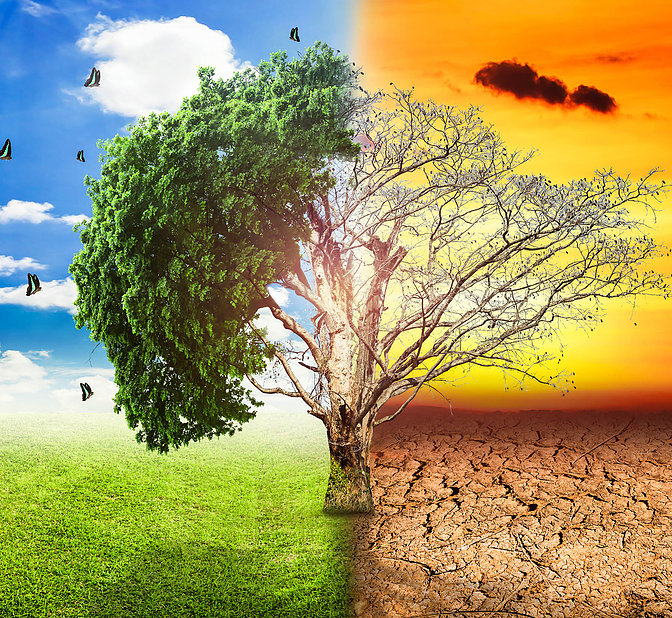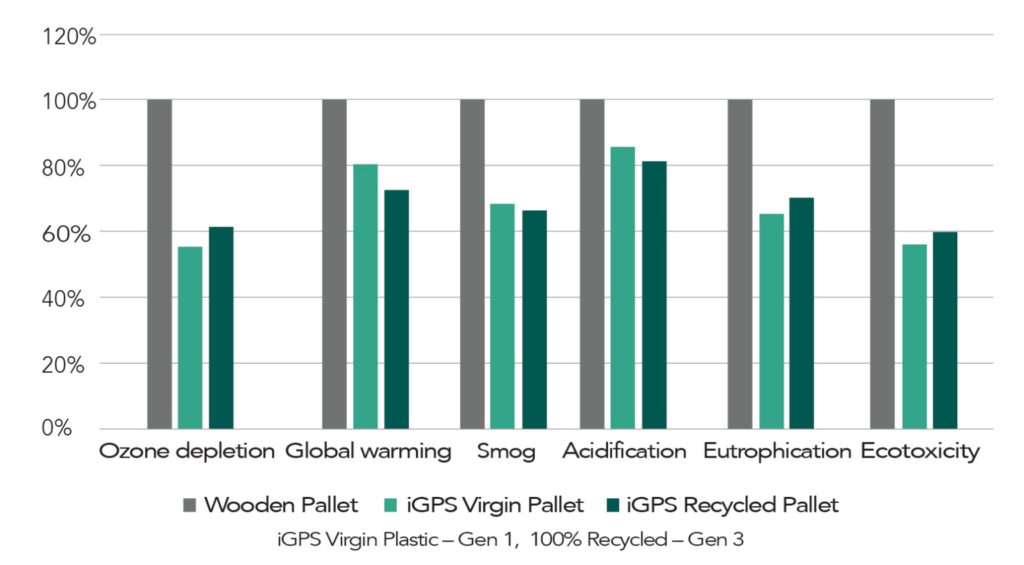Pallet Lifecycle Analysis
An independent pallet life cycle analysis conducted by Environmental Resources Management compared the environmental impact of iGPS plastic pallets with common multi-use wood pallets. This 2020 study, conducted in accordance with international standards, measured the ‘cradle-to-grave’ impact of the production, usage, and disposal of 3 pallet types—iGPS virgin pallets, iGPS recycled pallets, and multi-use wood pallets.
The study concluded that iGPS’ virgin and recycled plastic pallets have significantly less environmental impact than pooled multi-use wood pallets. Listed below are several ways iGPS pallets improve sustainability metrics:

When Comparing the iGPS Pallet & the Typical Multi-Use Wood Pallet:

Ozone Layer Depletion
iGPS pallets have 38% less impact
Global Warming
iGPS pallets have 28% less impact
Smog
iGPS pallets have 36% less impact
Acidification
iGPS pallets have 22% Less impact
Eutrophication
iGPS pallets have 32% less impact
Ecotoxicity
iGPS pallets have 40% less impact
Why iGPS Plastic Pallets are the Most Environmentally Responsible Pallets
Production
Newly manufactured iGPS pallets made from recycled plastic have a significantly lower impact on fossil fuel depletion than wood pallets.
As of the end of 2023, iGPS has purchased and/or recycled over 278 million pounds of post-consumer plastic to produce our pallets. Plastic that might have otherwise ended up in a landfill or ocean.
Usage
iGPS shipping platforms are up to 35% lighter than multi-use wood pallets and require less fuel and transport costs, leading to reduced greenhouse gas emissions.
Stronger, safer, and greener iGPS plastic pallets are an ideal fit for pallet pooling, saving companies the expense and hassle of pallet management. iGPS’ “iDepots” help businesses optimize logistics and reduce their carbon emissions by lessening the average trip distance.
Disposal
A wood pallet can only make up to 25 trips across the supply chain before it is unusable and 16% ultimately end up in a landfill.
In comparison, iGPS plastic pallets complete 100+ trips across the supply chain before being recycled into “new” pallets, offering ‘cradle-to-cradle’ sustainability.